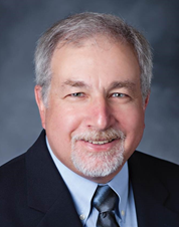Last month, 68 Republican legislators told 1,939,033 Idahoans what they can’t read in libraries.
That’s how many of them voted for House Bill 314, which empowers Attorney General Raul Labrador to prosecute and punish every public and private school library for anything on the shelf that he decides is “harmful to minors.”
And don’t think he won’t do it. Labrador has already issued over 50 subpoenas to “investigate” childcare organizations that accepted federal funding. This bill puts libraries in the crosshairs of another one of his political fishing expeditions.
Make no mistake about it. This issue is not about pornography in libraries. It is about using legal intimidation to advance divisive “culture wars” for political gain and control, especially within the majority party. Even though Governor Little vetoed the bill, it will be back next year.
Two years ago, “porn” in libraries wasn’t even a problem. Library boards staffed by good, honest citizens were doing their job as they always did – and continue to do. No one was afraid to let their kids go to the library. Suddenly obscene material in libraries is now a crisis of monumental proportions.
The real obscenity isn’t porn, it’s propaganda.
For example, if one person says the sun revolves around the Earth, they are a kook. If 10,000 people say it a million times, people may think it’s true. After all, “Look where the sun is in the morning and then at dusk. Who are you going to believe, some elitist ‘astronomy expert’ or your own eyes?!”
In the case of “porn” in libraries: “Who are you going to believe, the woke liberal media or these pictures my friend said he found in a library book?” Of the thousands of people sending emails to legislators, almost none of them personally found real “porn” in a library. They are genuinely outraged by what they are hearing, but most are repeating what others are saying.
I know some people have found content in a library book that they sincerely find offensive. However, there’s a big difference between pornography found in an adult bookstore and a library book about same-sex marriage (which is legal) or gender dysphoria (which is real). When it all gets labeled simply as “porn” the facts get blurred and the outrage grows way out of proportion.
Laws should be based on fact – not hearsay, rumor, conjecture, anecdote, or innuendo. I support the conservative principle that government is best when it’s closest to the people. That’s why we have elected local library boards, or boards appointed by elected officials.
The Legislature needs to let them do their job.
Library boards should be allowed to determine the facts via a local process that solicits documented complaints. Anyone who claims to have found inappropriate material in the children’s section of a library should submit a formal, signed complaint that specifies the date, time and location of what they personally observed.
Citizens should go on the record, not on social media, to register their grievances.
Library boards should welcome this input and be expected to respond to a documented complaint. Constituents should let their legislators know if a school library has refused to act upon their written complaint so it can be addressed further (and provide a copy of the documentation they submitted).
But that doesn’t mean every complaint is agreed to and acted upon. Any decision will ultimately result in someone being dissatisfied. No one individual should expect to have the power to force all of their personal moral standards on every other citizen within their community.
And neither should the Idaho Legislature.

